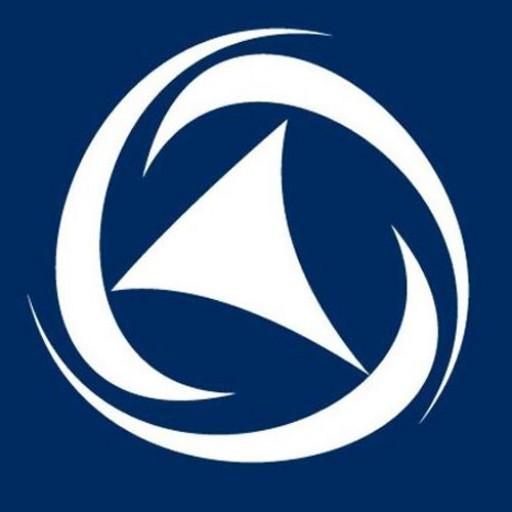The Certificate IV in Accounting and Bookkeeping is a comprehensive qualification designed to equip students with essential skills and knowledge required for a career in accounting and bookkeeping roles. This program provides a solid foundation in financial principles, enabling graduates to perform tasks such as preparing financial reports, maintaining accurate financial records, and supporting business operations through effective bookkeeping practices. Throughout the course, students develop proficiency in using accounting software, understanding financial legislation and standards, and applying bookkeeping processes to real-world scenarios. The curriculum covers a range of topics including managing accounts payable and receivable, reconciling accounts, preparing financial statements, and supporting the financial decision-making process. The program also emphasizes the importance of ethical practices and compliance with regulatory requirements in the accounting industry. Delivered through a combination of theoretical instruction and practical activities, this qualification prepares students for employment as bookkeeping clerks, accounting assistants, or small business bookkeepers. Graduates will also have the skills necessary to undertake further studies in accounting or finance fields, advancing their career prospects. The program is suitable for individuals seeking to enter the accounting workforce with a strong operational understanding or those looking to formalize their existing bookkeeping experience with a nationally recognized qualification. The Certificate IV in Accounting and Bookkeeping provides a pathway to employment or further education, ensuring students are job-ready and capable of supporting organizations in their financial management needs. With a focus on practical application, this course aims to produce competent and confident professionals who can contribute effectively to the financial health of any organization.
The Accounting and Bookkeeping program at Kangan Institute is designed to equip students with comprehensive skills and knowledge necessary for a successful career in financial management, accounting, and bookkeeping. This course covers fundamental concepts such as recording financial transactions, managing ledgers, preparing financial statements, and understanding compliance with relevant regulations. Students will learn how to use industry-standard accounting software, ensuring they are well-prepared for the digitalized accounting environment. The program emphasizes developing accuracy, attention to detail, and analytical skills, enabling students to prepare precise financial reports, perform reconciliations, and assist in budgeting processes. Throughout the course, students will also gain an understanding of the ethical considerations and legal requirements underlying accounting practices, fostering integrity and professionalism in their work.
The curriculum includes modules on bookkeeping principles, payroll management, taxation, and financial reporting. Practical sessions and real-world case studies help students apply theoretical knowledge to actual scenarios, enhancing their problem-solving abilities. The course is suitable for individuals seeking entry-level positions in accounting firms, small to medium enterprises, or to start their own bookkeeping services. It also provides a solid foundation for those who wish to pursue further studies or professional certifications in accounting and finance.
Kangan Institute's commitment to quality education ensures students receive industry-relevant training supported by experienced instructors. The program combines classroom-based learning with interactive activities, internships, and industry placements to facilitate experiential learning and employability. Upon completion, graduates will be equipped to work as Bookkeepers, Accounts Clerks, or Junior Accountants, with the flexibility to advance their careers through additional qualifications. This program is ideal for individuals who are detail-oriented, organized, and interested in financial processes, providing a pathway into the dynamic and essential field of accounting and bookkeeping.
Program requirements for the Certificate IV in Accounting and Bookkeeping typically include the successful completion of all core units and elective units as specified by the course curriculum. Prospective students are generally expected to have a basic proficiency in English, with a minimum language proficiency equivalent to an IELTS score of 5.5 or a comparable qualification, to ensure they can comprehend course content and complete assessments effectively. Prior knowledge or experience in finance, accounting, or business may be advantageous but is not mandatory. Applicants must submit an application form along with any necessary supporting documents, such as proof of identity and previous education qualifications. Depending on the selection process, there may be an interview or assessment task to evaluate the applicant's suitability for the program. International students are required to meet visa requirements, which generally include proof of sufficient financial means, health insurance arrangements, and compliance with English language proficiency standards. The program has specific structural requirements, including the completion of a set number of coursework hours, practical assessments, and successful demonstration of competency in all unit outcomes. Students are also encouraged to engage with supplementary learning resources, participate in practical workshops, and undertake work placements if available to enhance their understanding and job readiness. The program aims to equip students with the essential skills to perform accounting and bookkeeping tasks confidently within various business environments, conforming to professional standards and industry best practices. It also prepares students for potential further study options or direct entry into bookkeeping and accounting roles in the workforce. Adherence to any additional participation or attendance requirements specified by the institute is necessary for successful course completion.
Financial aspects of the Accounting and Bookkeeping program at Kangan Institute, TAFE VIC, involve various components including tuition fees, funding options, and potential financial assistance. The tuition fees for the program are structured to be accessible and competitive, aligning with TAFE VIC’s commitment to providing quality education at an affordable rate. Typically, domestic students may be eligible for government subsidies such as the Victorian Skills First Funding, which significantly reduces the cost of enrollment, making vocational education more affordable. The exact fee amount varies depending on factors such as the student's residency status, prior qualifications, and whether they are enrolled as a full-time or part-time student. International students, on the other hand, are charged a different fee schedule, which is generally higher and paid in full prior to or at the commencement of the course.
Funding options for eligible students include government concessions, fee relief schemes, and payment plans. Eligible students can access concessions provided they meet specific criteria such as income status or existing government support. Payment plans are also available, allowing students to pay their tuition fees in installments, easing financial burden over the duration of the program. Additionally, students may explore external financial assistance programs, including scholarships and bursaries offered by various organizations, aimed at supporting students pursuing vocational education in finance.
The program’s cost structure also considers the resources and materials provided, including textbooks, online access, and other learning materials, which are typically included in the overall course fee or available for purchase at a subsidized rate. Students are advised to consult the official Kangan Institute website for detailed and current fee information tailored to their circumstances. Financial counseling services are available to assist students in understanding their options and navigating the funding process effectively.
As part of the training, students may also undertake practical placements which can involve additional expenses such as transportation or accommodation, depending on the placement location. However, some placements are integrated into the course fee, providing a comprehensive learning experience without additional costs. Overall, the financial structure of the Accounting and Bookkeeping program is designed to support students through accessible pricing, flexible payment options, and available financial assistance mechanisms, fostering successful completion and career readiness in the finance sector.
The Certificate IV in Accounting and Bookkeeping at Kangan Institute, TAFE VIC, is designed to provide students with foundational knowledge and practical skills essential for a career in accounting and bookkeeping. This program covers a comprehensive range of topics, including financial and management accounting, bookkeeping, payroll, taxation basics, and accounting software applications. Students learn how to prepare and manage financial reports, maintain accurate financial records, and utilize industry-standard tools such as MYOB and Xero. The course emphasizes practical training through real-world projects and case studies, enabling students to develop their analytical and problem-solving skills pertinent to accounting roles.
Graduates of this program are equipped to work as bookkeeping clerks, accounts clerks, or finance officers within various industries. The qualification also serves as a pathway to further studies in accounting or finance, opening up opportunities for professional development. The program is delivered through a blend of face-to-face classes, workshops, and online learning to accommodate diverse learning needs and schedules. Assessment tasks include assignments, practical demonstrations, and exams to ensure competency in key areas.
Kangan Institute partners with industry organizations to ensure that the curriculum remains relevant and aligned with current industry standards and practices. Students also gain soft skills such as communication, attention to detail, and ethical practice, which are highly valued in the accounting and finance sectors. Entry requirements typically include a baseline of numeracy and literacy skills, and prospective students are encouraged to review the specific prerequisites for enrollment.
This qualification is nationally recognized, enabling portability of skills and recognition across Australia. The Institute provides support services for students, including career advice, tutoring, and access to industry networks, helping graduates transition into employment or further education. Overall, the Certificate IV in Accounting and Bookkeeping aims to prepare competent, industry-ready professionals who can contribute effectively to business operations in various organizational contexts.









